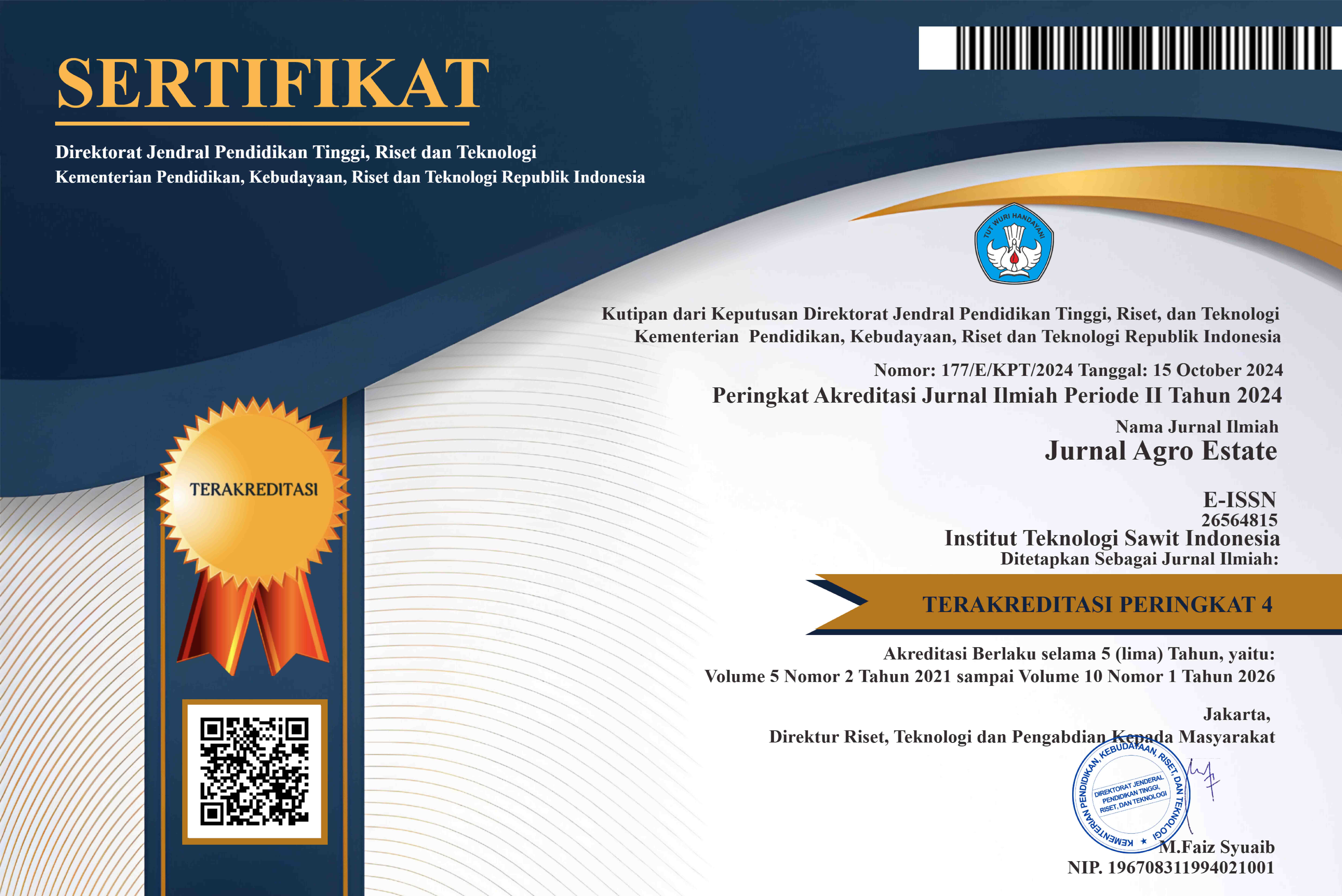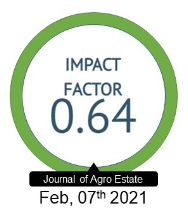SINKRONISASI PENERAPAN ISPO (Indonesian Sustainable Palm Oil) PADA INDUSTRI SAWIT BERKELANJUTAN TERHADAP KONDISI DI MASYARAKAT
DOI:
https://doi.org/10.47199/jae.v8i2.258Keywords:
Certification, CPO, Industri, ISPO, PlantersAbstract
Indonesian Crude Palm Oil (CPO) exports internationally are facing several problems, where in the European market, Indonesian palm oil is considered to come from unsustainable processes from the upstream to downstream sectors. ISPO is the only certification system used for sustainable management of oil palm plantations. ISPO certification aims to: improve the welfare of palm oil farmers (planters), train palm oil farmers in sustainable agricultural practices, expand palm oil farmers' access to markets, ensure the benefits of the palm oil industry are felt evenly. Data as of December 6 2023, a total of 4.09 million hectares of oil palm land in Indonesia has been ISPO certified, 4% or 270,800 hectares is land/plantation owned by people who have been certified while the rest is owned by companies with Fresh Fruit Bunches (FFB) production of 42.59 million tons. per year. In addition, as many as 816 actors in the palm oil sector have been ISPO certified, of which 105 certificates were given to farmers with a land area of 426,183 hectares and another 711 certificates were given to oil palm actors with oil palm land of 3.67 million hectares which produced 39.21 million tons of FFB per year. A total of 12.1 million hectares of oil palm plantations/land have not been ISPO certified, of which this area is divided into 6.44 million hectares managed by farmers/plantations, and the remaining 5.71 million hectares managed by companies. The low level of ISPO
Downloads
References
Andriani, Y., Hutabarat, S., Restuhadi, F., Yusri, J., Septya, F., Kurnia, D., Rifai, A., Herlon, M., Pebrian, S., Novian., Cepriadi. (2024). Pengenalan Indonesian Sustanable Palm Oil (ISPO) bagi Pekebun Kelapa Sawit Desa Koto Tibun untuk Mendukung Pengembangan Perkebunan Kelapa Sawit Berkelanjutan. JP2N. 1(2).173-180.
Damayanti, F. (2020). Skeptisme Uni Eropa terhadap Regulasi Domestik Indonesia dalam Rangka Ekspor-Impor Crude Palm Oil : Indonesian Sustanable Palm Oil. J. International Relations. 6(2).181-188.
Erina, N. G. F. (2024). Peran RSPO dan ISPO Pada Keberlanjutan Industri Minyak Kelapa Sawit di Indonesia : Studi Kasus Indofood. J. Riset dan Konseptual. 9(2).290-298.
Hutabarat, S. (2022). ISPO dan Keberlanjutan Kelapa Sawit di Indonesia. IJAE. 13(2).130-139.
Kamim, A. B. M.,dan Ibrar, M. I. (2020). Bagaimana Sertifikasi Kelapa Sawit Berkelanjutan Gagal Mencegah Perusahaan Anggota RSPO dan ISPO Merampas Tanah Adat di Indonesia?. J. Agraria dan Pertanahan. 6(2).145-157.
Menteri Pertanian Republik Indonesia. (2020). Penyelenggaraan Sertifikasi Perkebunan Kelapa Sawit Berkelanjutan Indonesia.
Sari, M. I., Hadi, S., Rosnita. (2022). Analisis Capaian ISPO (Indonesian Sustanable Palm Oil) Perkebunan Kelapa Sawit Pola Swadaya di Kabupaten Rokan Hulu. J. Agribisnis. 24(1).33-41.
Sisungkunon, B. A. (2021). Standar Keberlanjutan Minyak Sawit Indonesia. LPEM. FEB-UI.
Wulandari, A dan Nasution, M. A (2021). Perbandingan Roundtable on Sustainabla Palm Oil (RSPO), Indonesian Sustanable Palm Oil (ISPO), dan Malaysian Sustainable Palm Oil (MSPO). J. Pen Kelapa Sawit. 29(1)35-48.
Downloads
Published
How to Cite
Issue
Section
License
Copyright (c) 2024 Jurnal Agro Estate

This work is licensed under a Creative Commons Attribution-ShareAlike 4.0 International License.























